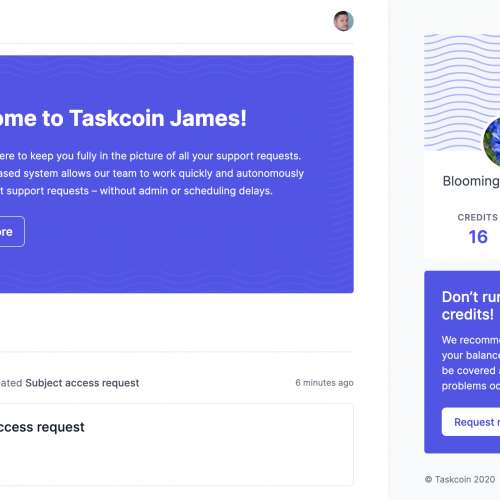Startups – if you’re “doing SEO”, you’re probably doing it wrong. If you’re paying somebody else for “SEO”, then you’re definitely doing it wrong.
SEO, or Search Engine Optimisation, is generally agreed to be the process by which you try to influence where your website, or web pages, rank in search results for certain key words and phrases. In other words, you optimise your website for search engines.
If you are making changes to your website and writing copy purely to affect where your website ranks in search results, stop. Stop it now.
Optimise your website for people not search engines
Never optimise your website just for a search engine.
Up until as recently as a year ago, SEO mainly consisted of a bunch of “tricks” that would make your site stand out to Google and as such, be ranked higher. SEO experts would write “invisible” keywords in white on a white background, or fill the website footer with keywords. While there are still a lot of ways to “trick” search engines into ranking your site higher, these are not sustainable.
Google is a business and just like any good business, they aim to provide a quality product to their users. Therefore, it’s in Google’s best interests to help users find the high quality content they’re looking for. After all, if Google gave you completely unhelpful search results, you’d stop using it wouldn’t you?
Google is able to provide these high quality search results through a series of rather complicated algorithms, or formulas, that take your search queries and use them give you the results you’re looking for.
According to Moz, Google updates it’s algorithms 500-600 times a year to improve the search process. A large part of improving search involves reducing spam or sites that “attempt to game their way to the top of search results through techniques like repeating keywords over and over, buying links that pass PageRank or putting invisible text on the screen”.
You see, while there will probably always be SEO tricks that can improve your search ranking , what Google really wants is to provide users with the high quality content that they’re looking for.
“Rather than trying to figure out reverse engineering the algorithm and trying to find all the different ways to rank higher and trying to take shortcuts, as long as you’re trying to make a fantastic site that people love, that’s really compelling, that there are always coming to, that’s the sort of thing that puts you on the same side as Google” – Matt Cutts, head of Google’s Webspam Team
Therefore optimising your website for Google, or any other search engine, is a waste of time. Make sure your website is optimised for users and improved search rankings will follow.
Tip: NEVER hire an SEO company that claim they know “secrets” or “tricks” that will improve your search ranking. There are no tricks worth risking your relationship with Google for, so don’t even try.
While you should never optimise your website for search engines, there are ways you can make it easier for Google to identify your website or web pages as a relevant, useful result for particular search terms…
SEO should happen by default
Your website’s architecture, all of it’s content and even how it’s coded will play a part in how it is ranked in search results. A well developed website will make it easier for search engines to find and return your pages by default.
One key to building a well optimised website is semantic HTML. Simply put, semantic HTML helps you organise the information on your web pages in a way that makes it easy for search engines to understand.
At its simplest level, using standard HTML tags correctly will help a lot. For example, make sure you use <p> tags for paragraphs, <ul> for lists and your <h1> tags for the most important heading on the page. If you don’t understand any of this, don’t worry, head over to Codeacademy for some free lessons on basic HTML to get you started.
On a more advanced level you can literally describe data in your pages using Microformats, Microdata or RDF, amongst others.
Remember, the point of semantic markup is to make it easier for “machines” to understand your pages but it can also make your website easier to use for people with disabilities and makes your pages easier to read by other developers.
Tip: Don’t develop your website for search engines but do make it as easy as possible for search engines to understand your content.
Focus on traffic not SEO
SEO is a broad topic that covers a range of tips and tricks that make your site more visible to users through organic search results. In fact, there are so many SEO tips and tricks out there, it can be easy to lose your focus.
Remember that you are optimising your site to attract more relevant traffic, not to have good SEO.
There’s no point being in the top 5 search results for a keyword or phrase that is only tenuously related to your business. Sure, you’ll be on the front page of a Google search, and you might even see an increase in traffic but it won’t be relevant, it won’t affect those all important conversions and it might even end with a Google penalty…
Google take spam seriously and if their algorithms flag your website as spam, your site will be penalised. Penalties can differ in severity but in general they have a negative effect on your search ranking (i.e. you’ll appear lower in search results, if at all) and can take months to recover from. Matt Cutts has also stated that Google will penalise multiple offenders more seriously.
Remember, penalties are given to websites that Google identify as “spam”. As long as you’re providing good quality, relevant content, you will be fine.
SEO is not a strategy in itself
These days, SEO shouldn’t be considered a strategy in itself, but should be integrated into your more general marketing strategy.
Take content marketing for example. Content marketing aims to attract your target audience to your website by providing content that they will find interesting and useful. While SEO should not be the goal of your content marketing, quality content will help search engines find and rank your pages, especially if your visitors are sharing and talking about your content on social channels.
Whatever you do, always consider your target audience and how you can make it easier for them to find you. If you must have an SEO strategy, let it be that.
Measure, measure, measure
Like any marketing strategy, there’s no point experimenting with website optimisation if you’re not going to measure it. If you don’t measure the effects of your efforts, you’ll never know whether they’re working and you risk wasting your time and money or dropping methods that you didn’t realise were working for you.
Optimise your website for people not machines and you’re on your way to SEO success.



